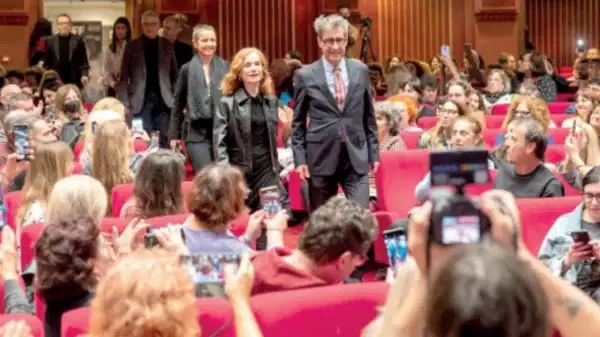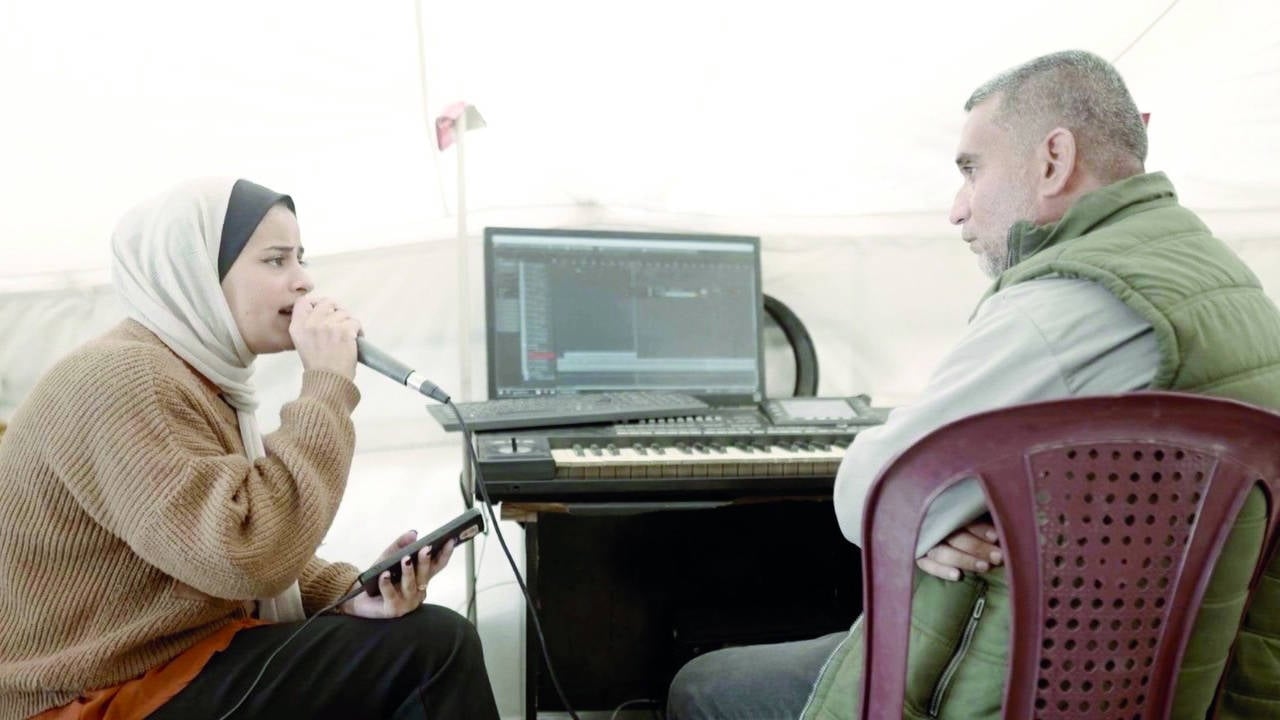Isabelle Huppert Receives Golden Alexander Honorary Award in Thessaloniki: 'I Must Be Free in My Art'

The 66th Thessaloniki International Film Festival presented the Golden Alexander Honorary Award to French and international star and theater actress Isabelle Huppert for her contributions to the art of cinema. Fifteen of her films were screened at the event, the actress gave a masterclass titled "From Stage to Screen," and attended the screening of "Copacabana" with her actress daughter, Lolita Chammah.
During the masterclass, Huppert shared her valuable knowledge of theater and film with her fans. Greek writer and poet Ersi Sotiropoulou moderated the event. A frequent traveler to Thessaloniki, Huppert's films were an integral part of the festival. The prolific actress stated that she was very pleased with her films, connected with the characters she portrayed, felt privileged to work with great directors, and that the films on display were a special selection.
SEARCH FOR THE UNKNOWNShe explained that she frequently steps outside her comfort zone and that the film in which she first felt like an actress was the Hungarian production The Heiresses (Marta Meszaros, 1980). "Working abroad is wonderful. This way, you become part of a foreign territory. Playing complex characters has never been difficult for me. The real challenge is working with a director you don't trust. The relationship between director and actor should be based on mutual trust. I've always been privileged and fortunate; I've always sought and chosen roles that featured women. I approach the unknown with curiosity. The only thing that has changed is the way cinematic production is consumed. I always seek the unknown. A deep dive into the unknown is exactly what I seek, and what I usually find," she said.
Huppert, who first appeared in front of the camera at the age of four in a video shot by her father, said, “When you have to take on a role, there’s no time to think. When it comes to performing, I stop thinking; it’s all about the moment. I studied with Peter Zadek, a legendary figure in German theater. Theater is often physically and mentally tiring. Acting requires constant focus because every movement is visible. After a while, an imaginary world emerges on stage. Sarah Kane’s play “4.48 Psychosis” had an abstract element that contradicted naturalism and realism. I stood motionless on stage for two hours. To give a good performance in theater, you have to forget that the audience is in the hall.” She also touched on Claude Chabrol’s The Ceremony (1995) and Michael Haneke’s The Piano Teacher (2001): “Good and evil, the struggle between classes, a Marxist interpretation. An ironic, sharp, tragic film. Chabrol’s films are political. Haneke, too, constantly creates tension in his films. In The Teacher, there was a shot with my back to the camera, my face not visible, me eating a sandwich, no dialogue, yet the tension was still felt.”
Blurring of BoundariesShe stated that she doesn't follow a specific acting method, emphasizing that it's a method she inherited without consciously making a decision. She emphasized that in the past, there were good and bad characters, but now the boundaries between the two have blurred. Huppert emphasized the importance of a sense of freedom in actors, that adhering to a single theatrical tradition is wrong, and that she supports playwright Alfred Jarry's idea that we should kill the theater, sharing the belief that we should be free in both theater and film.
'I CANNOT CARRY THE WHOLE BURDEN OF FAILURE ON MY BACK'Michael Cimino's "Heaven's Gate" (1980) was a fantastic experience; we spent seven months in Montana, USA. This film is known for both its success and failure. It didn't do well at the box office. Throughout my career, I've always thought this film was an auteur's, a personal film with harsh, political commentary. Failure, of course, affects me. We don't make films to keep them hidden in a room; we make them for a large number of people to see. I'm just an actor; I can't carry the weight of failure on my shoulders." Known for challenging roles, Huppert says, "I play complex, controversial characters, but I don't make them unlikeable. There used to be clear boundaries between good and evil; now those boundaries are blurred, indistinguishable." She commented on Copacabana (2010), in which she starred alongside her daughter, "It was a wonderful collaboration, a comedy with sharp edges that deeply comments on the lack of communication between generations while disrupting the balance between mother and daughter."
Cumhuriyet





